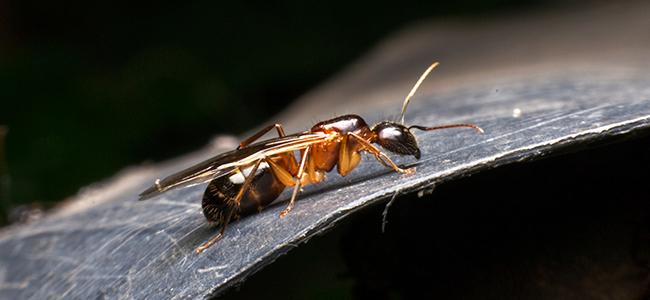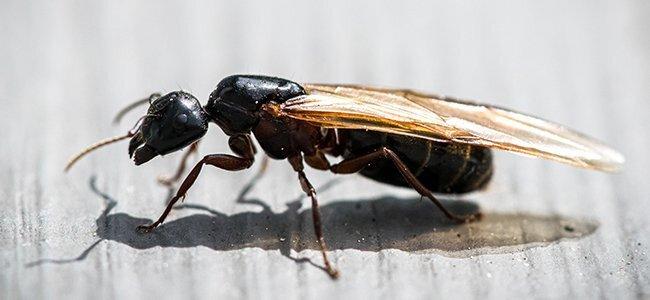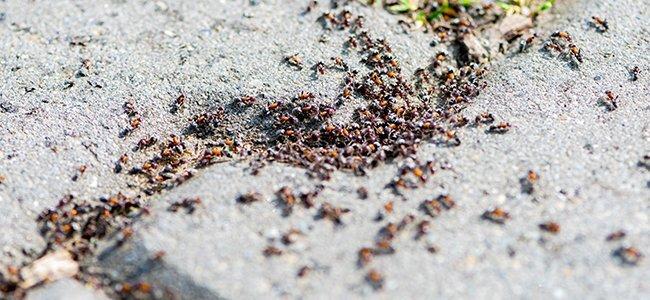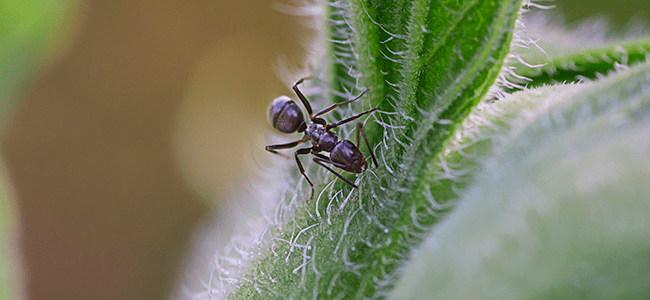
Washington D.C.'s Complete Guide To Odorous House Ant Control
09/03/2021
If ants are making their way around your Washington D.C. home, they can bring a variety of problems to you and your family. However, if it’s ...
READ MORE >
It doesn't take long for ants to get out of control in Virginia. The warm temperatures and humidity give them the perfect environment to do what they do best: search for food and spread their species. This is all well and good in nature where ants have a helpful role of aerating soil. But in your home, their presence can be a frustrating pain.
Pavement Ants: The most plentiful ant in Virginia is the pavement ant who builds volcano-like mounds all through your lawn, in the crevices of pavement (as their name suggests) and in landscape pavers. They can also infest buildings, especially structures that are built on a concrete slab.
Odorous House Ants: These small dark brown to black ants range in size from 1/16th to 1/8th of an inch, and go straight for the sugar. For this reason they are sometimes referred to as sugar ants. But sugars aren't the only thing these ants eat. They like meats, dairy products, and vegetables. When stepped on, these ants leave a distinct and unpleasant smell of rotten coconuts.
Red Imported Fire Ants: Often called by other, more colorful, names and expletives, this ant is a terror to bare feet. In nature this ant will feed on the sugars found in nectar or aphid honeydew, but it is also a protein eater, capable of taking down small animals. Have you ever wondered why fire ants bite you? Fire ants bite to get a grip on their prey. The painful burning you feel isn't from their mouths, but from the venom they inject with their tail stinger.
Carpenter Ants: Of all the ants you can get in your Virginia home this is the worst. Carpenter ants are a destructive wood-chewing insect. Though they come into your home in search of the same food other ants eat, they don't have any desire to leave. This is a pest that prefers to live in wood. It can chew large galleries in the wood of a home, usually in areas that have been softened by moisture.
EXCLUSION
Make sure all windows and window frames are completely sealed and screened.
Inspect all door sweeps and weather stripping to be sure they are in good working order.
Seal any cracks in basement walls. It is especially important to look in hard-to-see places.
Don't leave wet leaf cover in your yard.
Make sure there are no obstructions in your gutter systems that makes water to run down the sides of your home.
By reducing entry points and areas where moisture and water collects, you can slow the spread of ants on your property. To fully exclude this and a host of other insects, get year round treatment from a professional.

09/03/2021
If ants are making their way around your Washington D.C. home, they can bring a variety of problems to you and your family. However, if it’s ...
READ MORE >

07/21/2021
When ants go on the march, nothing can stand in their way — not even your D.C. property. There are at least 700 different species of ants r...
READ MORE >

05/20/2021
If you are finding more pavement ants on your property than you want to, you need to know the trick to effective pavement ant control for Virginia ...
READ MORE >

04/30/2021
If you’ve ever had ants get into your house, you know how annoying it can be. There’s no such thing as seeing just one ant in your hous...
READ MORE >

Protect your home and family from nuisance and potentially damaging pests with a Preferred Care home pest control plan. Starting at $49/month

Don't let the bed bugs bite a second longer. Contact American Pest for the most comprehensive bed bug control in the industry. Learn More

Our certified rodent control pros will put an end to your frustration by getting rid of rats and mice inside your home. Learn More

Say goodbye to wood-destroying termites in your home when you contact American Pest for expert termite control. Learn More

Trust American Pest to deliver professional backyard tick control services that are guaranteed to get results. Learn More

Don't spend the warm-weather season indoors, find out how American Pest's professional treatments get rid of mosquitoes. Learn More
Fill out the form and recieve feedback in less than 5 minutes. For immediate service please call.